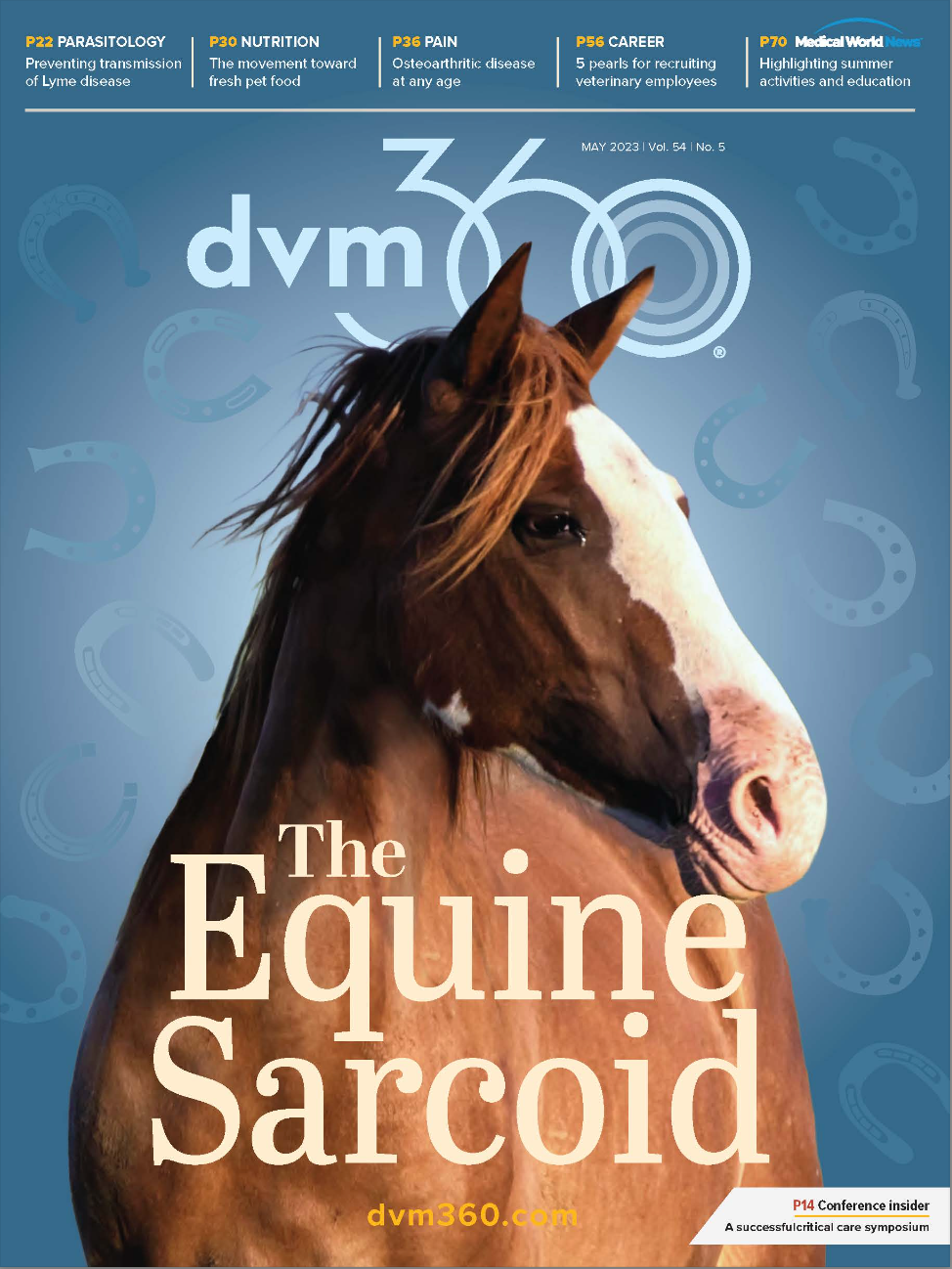The four-letter word to why you're burning out and feeling unproductive
And how to combat it
Azat Valeev / stock.adobe.com

Let’s bring attention to the 800-lb gorilla standing in the corner of the room. Practice ownership is tough. Some people intuitively know what to do and others struggle throughout the journey. The great news, everyone can learn to be a great practice owner by focusing their attention on what they are good at and enjoy doing while delegating the rest of the tasks especially the ones that are not revenue generating.
Here’s the problem. We all fall victim to the four-letter word. And it’s not the curse word. I’m talking about the word busy. Have you personally used the excuse that you’re too “busy?” The interesting thing is that the veterinary community has a nurturing and caring temperament so they tend to take on more then they should. The task that someone else should be doing they decide to absorb it into their own responsibilities. Or, if you’re like me, you can be a bit of a perfectionist and sometimes the thought about delegating a task is overwhelming because I could get the job done faster without all the explanation.
We all fall into this trap of being busy. The easier thing is to use the excuse that we were busy with this, busy with that, and continue to ignore everything else. I want to acknowledge that, yes, there are seasons where we are genuinely busy and the idea about having any flexibility feels unreachable. We might be “busy”, but the real challenge is that the tasks we are ignoring are not being put as a priority. Each day we have an opportunity to decide; to decide to do nothing or do something. When the priority always appears to be putting out fires or working on the easier tasks, we will keep using the excuse to delay or ignore the important ones.
When you think about practice ownership, why did you decide to start or purchase a practice? Our team has found time and time again that there are a few reasons. The main reason is they were tired of working for someone else with little say or control over their schedule. The other reasons are they wanted to practice medicine their way and earn more income. If you align with these reasons and find yourself stuck working in the practice and spending less time being a practice owner there are a few ways to get out of this trap of being burnt out and feeling unproductive.
1. Define your reasons for planning (personally and in business)
Your practice is the primary source of income for your family and for all the people that work with you. Since the practice creates money and can be profitable, the easiest thing to do is take money out for your personal expenditures, pay bonuses to employees without metrics on how they earned them, and invest money back into the practice without understanding the return on investment (aka ROI). Since we are oftentimes caught up in the whirlwind of daily life, we react to the circumstances in front of us and later try to justify that those decisions were the best for our family and the practice.
Each year there needs to be scheduled time to define what your personal and business goals are. Since most owners’ personal finances are dependent on the success of their veterinary practice, the decisions that are made in the practice can have a direct impact on how successful their personal finances will be today and later.
What are your reasons for planning in your personal finances?
- Do you have a desire to reduce the responsibilities of ownership and enjoy a certain lifestyle?
- Do you want to take more time off to enjoy time with family, vacation, and work on hobbies?
- Do you want to get a better understanding on how to save money to build up assets outside of your veterinary practice?
- Do you want to make sure that your life is going to be OK in the even that something catastrophic happened like a car accident or sickness?
What are your reasons for planning in your business?
- Do you want to grow the practice to multiple doctors?
- Do you want to have multiple locations?
- What type of careers and opportunities to you want to provide to your team?
- What role do you want to assume within the practice?
The questions above are a few to get your mind moving and the best thing you can do is take out a notepad or open a document on the computer to start brain dumping. The list might be messy, and the goal is to start identifying what is important to you. Once all these goals are written down you can organize on priority. Each quarter you should select 1-2 goals and at the end of each quarter it is a great time to review what was accomplished along with pushing a goal into the next quarter or selecting another one from your list.
2. Align your goals for the team with the practice
The practice would not be a practice without a team. Imagine trying to do everything from client scheduling, answering phones, handling paperwork, administering shots, meeting with patients, handling the books, and the list goes on. Employees are what make the veterinary practice function and operate at a high level. Each person gets their title and an outline of what their responsibilities are (at least we hope) but sometimes they do not fully comprehend how their behaviors have a direct impact on the profits of the practice.
Practice owners will provide bonuses to their employees each month, quarterly, and even annually. These bonuses might be paid out because the practice did better than last month or last year. The real problem is the person who receives the bonus is unaware on what they exactly did to help the practice. Everyone has a specific duty within the practice, and when their duties can be defined to one thing that is measurable now that person can have something to work towards. Anything that is provided to them in a form of a bonus, time off, or whatever perk is created would be a result of how productive they were with their one thing. Since practice owners do not have the time to define and track these things themselves, the real responsibility needs to be shifted to the employee to make sure they are tracking the activities. There are systems and ways to implement them by working with the right professionals.
The ultimate goal is to find ways to motivate and engage the team and to clearly define their roles. When each person is focused on what they need to help patient care and profitability then the duties can be delegated to the right people without taking on more responsibilities as an owner.
3. Be proactive not reactive to each situation
Ownership can feel like we are burning the candles on both ends. There are many demands from the team and patients along with all the duties of running a business. When you have effectively defined your reasons for planning and created clear roles with specific reward programs for the team each situation can be handled differently. As tasks and duties pop up, there are the four D’s that can be used with tasks. You can do, defer, delegate, or delete. Sometimes the tasks are quick and not much of a distraction but other times they can require a lot of energy.
Each task that falls into our lap does not need to be done by us or done by us right now. As your role within the practice begins to shift from working in the practice to working on it then you can really begin to pivot and focus on the things that really matter. One of the simplest ways to be more proactive with each situation is to foreshadow and plan. With your newfound time and established boundaries this will give you that freedom to plan a bit more. The best thing that can be done is scheduling a recurring time to address fires, make yourself available to the team, and even focus on the future planning. When everything gets the badge of urgent without taking the time to understand the significance our attention gets pulled in so many directions.
We can easily get sucked into the whirlwind of life and keep using the shield of BUSY. At one point, this will catch up to most people and all those ambitions, desires, and goals that they might have wanted to achieve become unattainable. The more that we can get present in our daily lives, create boundaries in our time, and clearly understand what is and is not urgent we can excel at a high level while delivery great medicine.
Tom Seeko has worked with practice owners and veterinarians since 2014. He is the cofounder of Florida Veterinary Advisors that work with veterinarians throughout the United States, Certified Exit Planner (CExP), business and personal financial advisor, and cohost of the Smarter Vet Financial podcast.
This material is intended for general public use. By providing this content, Park Avenue Securities LLC is not undertaking to provide investment advice or a recommendation for any specific individual or situation, or to otherwise act in a fiduciary capacity. Please contact a financial representative for guidance and information that is specific to your individual situation. Guardian, its subsidiaries, agents, and employees do not provide tax, legal, or accounting advice. Consult your tax, legal, or accounting professional regarding your individual situation.This material contains the opinions of the author but not necessarily those of PAS or Guardian. registered representative and financial advisor of Park Avenue Securities LLC (PAS). Securities products and advisory services offered through PAS, member FINRA, SIPC. Financial representative of The Guardian Life Insurance Company of America (Guardian), New York, N.Y. PAS is a wholly owned subsidiary of Guardian. Florida Veterinary Advisors is not an affiliate or subsidiary of PAS or Guardian. Florida Veterinary Advisors is not registered in any state or with the U.S. Securities and Exchange Commission as a Registered Investment Advisor. The individuals associated with Florida Veterinary Advisors do not maintain specialized licenses or qualifications for the financial services provided to veterinary professionals. CA Insurance License #0K80141. 2023-150386 exp 01-2025
